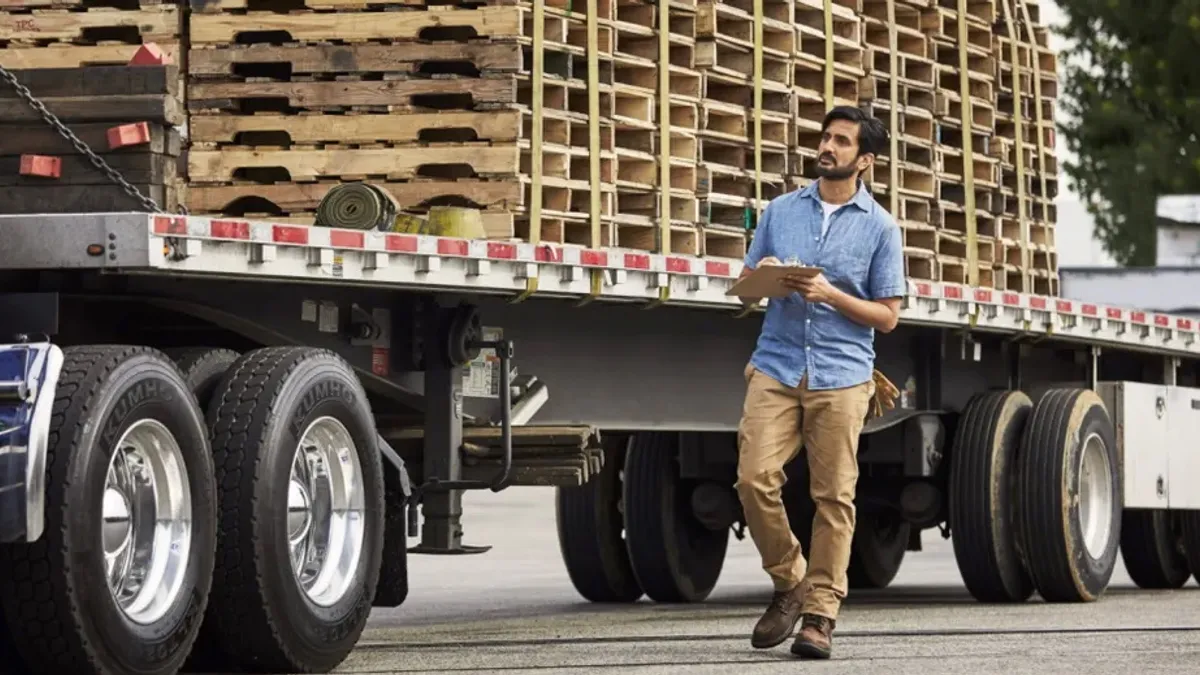Dive Brief:
- Uber Freight has expanded its offerings to include LTL services, the company announced on Thursday. Uber Freight began offering TL services in 2017.
- The digital carrier service, since its founding, has grown to 70,000 carriers in its network, with "thousands of shippers as customers, from small businesses to Fortune 500 companies, including AB InBev, Nestle, LG, Land O'Lakes and many more," according to a statement from Uber Freight last October.
- Despite competition from other digital freight-matching networks, Uber Freight saw 52% growth in its Q1 revenue YoY, Uber officials said.
Dive Insight:
Even as the trucking market is roiled as never before, Uber Freight's entry into LTL services is part of a vision to become a one-stop digital center for freight, said Michael Bailey, Uber shipper platform product lead. Thus, the company has been working on the expansion of its third-party logistics services for months.
The company will offer its LTL services in the United States for now, with an eye toward expanding into Canada, Bailey said. Uber Freight's experiences in TL made clear it could make the leap into LTL, said Bailey.
"We've done very well with truckload," Bailey said.
Uber Freight will allow for multiple quotes from multiple TL and LTL carriers. Uber Freight said it partnered with BlueGrace Logistics, a large 3PL, to more quickly enter the LTL market. Uber Freight is using BlueGrace's technology and LTL experience, company officials said. Shippers will thus be able to compare quotes, receive quotes, receive pickup and delivery information, select LTL carriers, manage billings and track shipments, according to the Uber Freight blog.
Uber Freight touts its visibility capabilities and technology, which were boosted by a partnership with Blue Yonder announced last year. Blue Yonder offers pricing searches and instant quoting "of real-time market-based prices and instant booking capabilities up to two weeks in advance of loads," according to a news release.
Olivier Causse, general manager of LTL at Uber Freight, said his firm looked carefully at the U.S. LTL market before entering it. The company is going up against 3PLs such as XPO Logistics, Coyote Logistics and C.H. Robinson, who offer the service, too. Uber Freight was already competing with load-matching boards that target TL clients, companies such as DAT and TruckStop.com.
Uber Freight enters the LTL sector as the North American market is currently undergoing a capacity crunch. In June, the largest U.S. LTL carrier, FedEx Freight, instituted "temporary targeted volume control," dropping or delaying shipments from as many as 1,400 clients, according to FreightWaves.
The move was temporary and "provided necessary volume relief," a FedEx Freight spokesperson told Transport Dive.
But investors appear confident. In October, Greenbriar Equity Group led an investment of $500 million in Uber Freight, with Uber maintaining majority ownership of Uber Freight.
This story was updated with information about BlueGrace Logistics.












